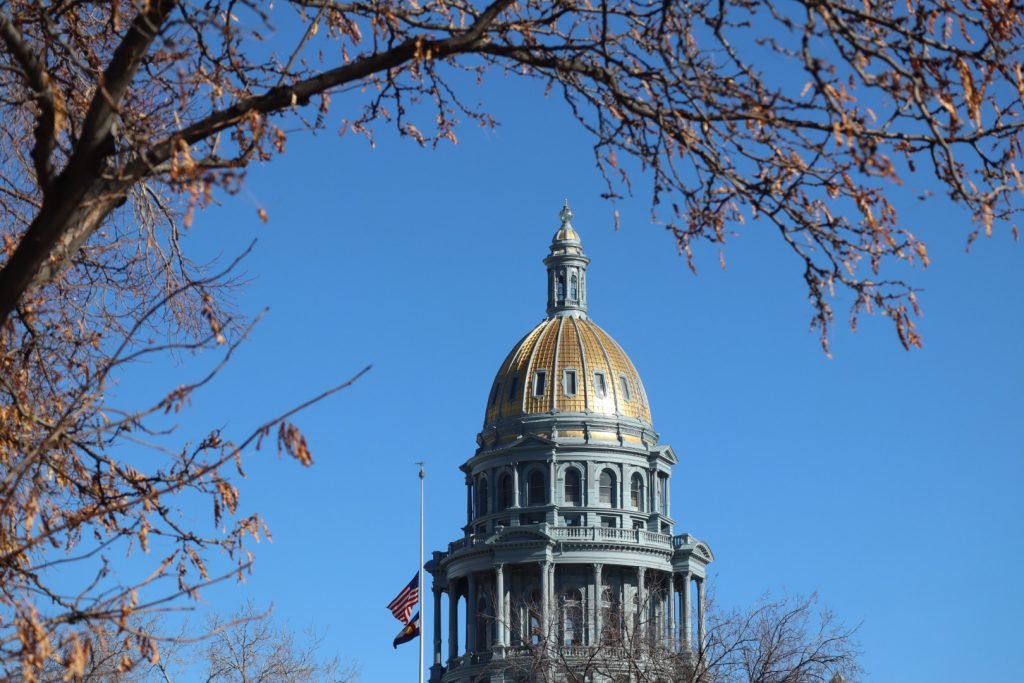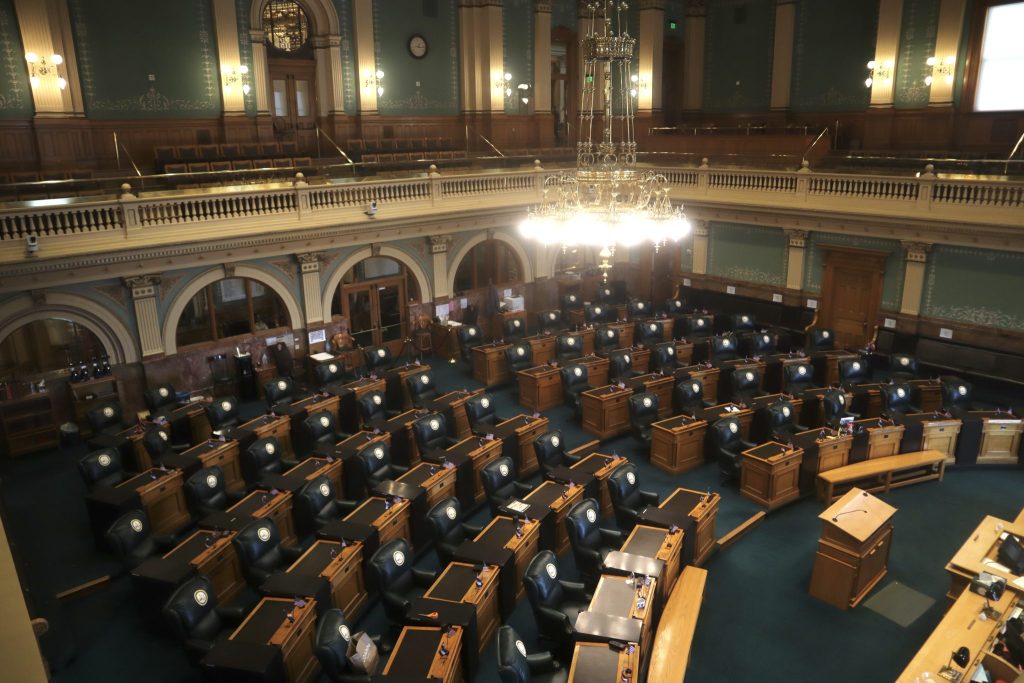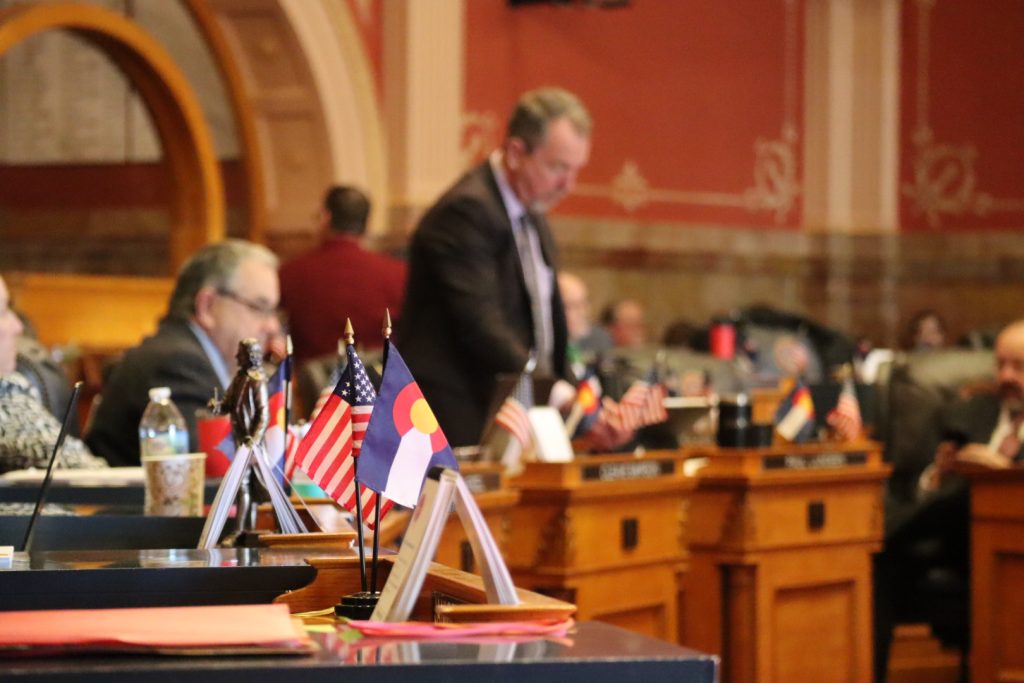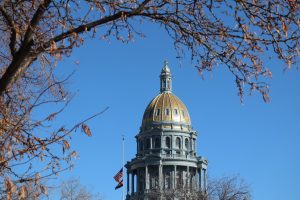Colorado special legislative session will include bills on wolf reintroduction, health insurance and small business tax assistance
Lawmakers are meeting in response to budget fallout, hits to programs as a result of President Donald Trump’s sweeping tax bill

Robert Tann/Summit Daily News
Colorado lawmakers have already introduced more than two dozen bills they plan to take up in the special legislative session that begins on Thursday, as they seek to close a roughly $783 million deficit in their current fiscal year budget.
The funding gap is caused by a reduction in income tax revenue as a result of the domestic policy bill passed by congressional Republicans and signed into law by President Donald Trump on July 4.
Dubbed the “big, beautiful bill,” the sweeping measure rewrote the tax code for individuals and corporations by extending and expanding a suite of tax cuts originally passed in 2017 during Trump’s first term. Fiscal analysts for the Colorado governor’s office and legislature say the cuts amount to an immediate $1.2 billion decrease in tax revenue for the state, primarily as a result of corporate tax breaks.
The drop in revenue means the state will fall below the spending cap set in place under the Taxpayer’s Bill of Rights, or TABOR, meaning lawmakers will be able to tap what would otherwise be a surplus in revenue to help close the gap, bringing the deficit to under $800 million. That means TABOR refunds will not be issued next year.
Lawmakers will have at least three days to pass legislation to rebalance their budget, as is required by the Colorado Constitution.
They will also try to blunt some of the impacts the “big, beautiful bill” will have on safety net programs like subsidized health insurance and food assistance. And they’ll look to reform a first-of-its-kind artificial intelligence law that’s set to go into effect in February 2026.
Included in the 27 bills already introduced are measures that would redirect money from the state’s wolf reintroduction program, bolster funding to offset health insurance costs, and end assistance for small businesses to collect sales taxes.
Here’s a closer look at some of the bills:
Redirecting some wolf money to the state’s health insurance fund
A bill introduced by a bipartisan group of Western Slope lawmakers seeks to withhold some funding for the state’s ongoing wolf reintroduction program and use the money to support the Health Insurance Affordability Enterprise.
The bill is sponsored by Sens. Dylan Roberts, D-Frisco, and Marc Catlin, R-Montrose, as well as Reps. Meghan Lukens, D-Steamboat Springs Democrat, and Matthew Martinez, a D-Monte Vista.
The measure would redirect just over $264,000 of the $2.1 million allocated in the 2025-26 budget for the reintroduction program. Colorado Parks and Wildlife would also be prohibited from using the remaining funding to acquire or reintroduce new wolves in the upcoming fiscal year, pausing the core of the program.
The state’s insurance enterprise fund supports affordability measures such as Colorado’s reinsurance program, which helps insurers cover high-cost claims as a way of mitigating large hikes in individual premiums. The enterprise also helps fund OmniSalud, which provides subsidized insurance plans to non-citizens who may be undocumented.
By bolstering the enterprise fund, lawmakers hope to help drive down what is expected to be a spike in insurance premiums next year for people enrolled through Affordable Care Act marketplaces, like Connect for Health Colorado.
Average statewide premiums could rise by 28%, while on the Western Slope, the average increase could be upwards of 40%. The increase is being driven by expiring Affordable Care Act subsidies that were not renewed in congressional Republicans’ policy bill.

Tapping the unclaimed property fund to subsidize health insurance costs
Another bill would tap the state’s unclaimed property trust fund to support the insurance enterprise fund in a bid to mitigate the rise in health insurance costs.
The measure is sponsored by Reps. Kyle Brown, D-Louisville, and Lindsay Gilchrist, D-Denver, as well as Sens. Iman Jodeh, D-Aurora, and Kyle Mullica, D-Thornton. It is also supported by House Speaker Julie McCluskie, D-Dillon, and Sen. Dylan Roberts, D-Frisco.
The unclaimed property fund maintains about $1.2 billion in lost assets, such as unpaid wages, forgotten bank accounts and abandoned property. The bill would transfer $100 million from that fund as an interest-free loan to support the state’s affordable insurance programs.
Republicans have introduced a bill that would restrict enterprise fund dollars from being used to cover immigrants who “do not have lawful immigration status in the United States.” Currently, the OmniSalud program provides plans to individuals regardless of their immigration status or documentation, meaning the bill would effectively end the program.
That bill is sponsored by Rep. Chris Richardson, R-Elbert County, and Sen. Mark Baisley, R-Woodland Park.
Ending fee assistance for small businesses to cover sales tax collection costs
Democrats have introduced several bills aimed at closing what they say are corporate tax loopholes, such as cracking down on companies that may be hiding their income taxes in other countries and ending a tax break for insurance companies that have regional offices in Colorado.
They say those measures will help boost revenue by hundreds of millions of dollars as they try to dig out of a budget deficit.
At least one bill will have a specific impact on small businesses by eliminating a vendor fee that helps cover their cost of collecting and remitting sales tax revenue to the state. The bill would end vendor fees in January 2026.
The bill is sponsored by Reps. Steven Woodrow, D-Denver, and Karen McCormick, D-Longmont, as well as Sen. Cathy Kipp, D-Fort Collins, and Faith Winter, D-Broomfield.
Currently, only retailers that have total taxable sales of $1 million or less for the filing period with the state are able to collect the vendor fee, according to the bill’s language.
A Republican bill would increase the maximum amount in compensation vendor fees provide from $1,000 to $2,000 beginning in January 2026.

Food assistance, budget reserve and AI
Other measures that will be taken up during the special session will include amending the language of two ballot questions related to school meals to channel money into the state’s Supplemental Nutrition Assistance Program, which is set to lose funding under Republicans’ policy bill.
The ballot questions, which will appear on voters’ ballots in the upcoming November election, will ask them to further limit income tax reductions and allow the state to keep more of that money to fund the Healthy School Meals for All program, which provides free breakfast and lunch for school children. Lawmakers believe it will increase funding by $95 million annually.
Lawmakers will try to amend the ballot language so that the increased tax revenue can also go to the state’s SNAP program.
Other bills will aim to reform the state’s pending AI law, which seeks to prevent algorithmic discrimination but has been criticized by business groups for being too burdensome.
Lawmakers are also expected to look at dipping into the state’s general fund reserves by as much as $300 million to help close their budget gap. The reserve currently sits at around $2.3 billion, which is equal to 15% of the state’s general fund.

Support Local Journalism

Support Local Journalism
Readers around Steamboat and Routt County make the Steamboat Pilot & Today’s work possible. Your financial contribution supports our efforts to deliver quality, locally relevant journalism.
Now more than ever, your support is critical to help us keep our community informed about the evolving coronavirus pandemic and the impact it is having locally. Every contribution, however large or small, will make a difference.
Each donation will be used exclusively for the development and creation of increased news coverage.










